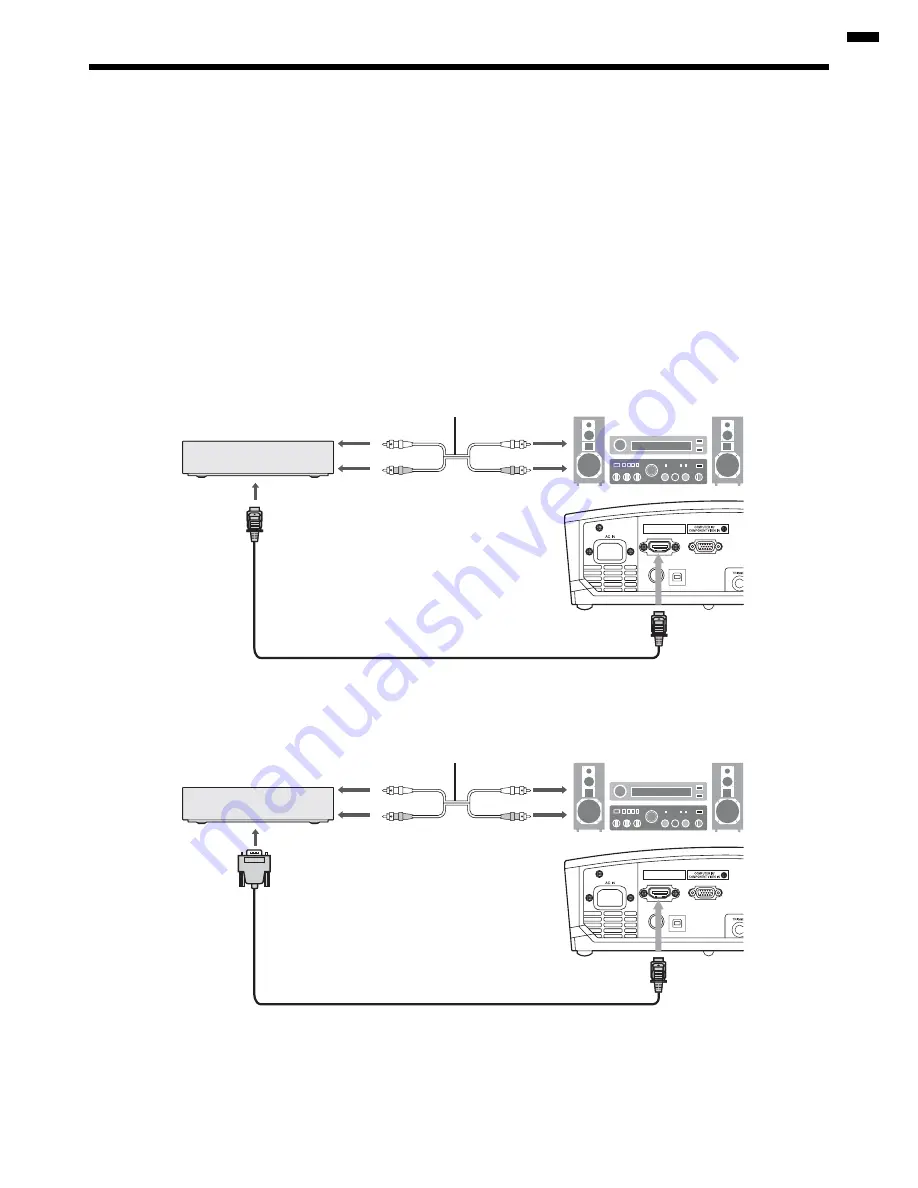
EN-15
ENGLISH
Connecting to video equipment having a HDMI terminal or DVI-D terminal
You can project high-quality images by connecting the HDMI IN terminal of this projector to video equipment having
a HDMI output terminal or a DVI-D output terminal. In addition, this projector supports HDCP and is able to receive
encrypted digital video data that are output from DVD players.
• Select HDMI as the input source.
• HDCP (High-bandwidth Digital Content Protection), developed by Intel Corporation, is a method to encrypt digital
video data for the purpose of copy protection.
• HDMI
(High-Defi nition Multimedia Interface) is fully backward compatible with computers, displays and consumer
electronics devices incorporating the DVI standards.
• This projector can be linked with video devices equipped with HDMI output terminal or DVI-D output terminal.
However, with some of them, this projector may not display any image or not operate correctly.
• If this projector doesn’t display any image or not operate correctly, see the operation manual of the video device
for its connection.
• When you use the video equipment other than HDMI conformity product, the image may not be projected properly.
• Use of a long cable may decrease the quality of projected images.
Connection (for video equipment having an HDMI terminal)
• Use a commercially available HDMI (with HDMI logo) cable.
• Images may not be projected correctly depending on the type of the video equipment you use.
HDMI IN
USB
SERIAL
Equipment having an
HDMI terminal
To audio output
terminals
Audio cable (option)
To audio input
terminals
To HDMI terminal
HDMI (with HDMI logo) cable (option)
To HDMI IN terminal
HDMI IN
USB
SERIAL
Equipment having a
DVI-D terminal
To audio output
terminals
Audio cable (option)
To audio input
terminals
To DVI-D terminal
DVI-HDMI conversion cable (option)
To HDMI IN terminal
Connection (for video equipment having a DVI-D terminal)
• Use a commercially available DVI-HDMI conversion cable.
Viewing video images (continued)
















































